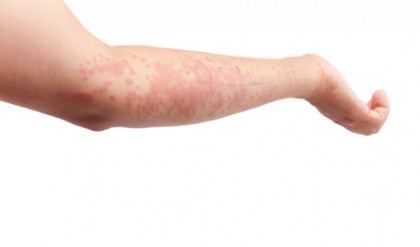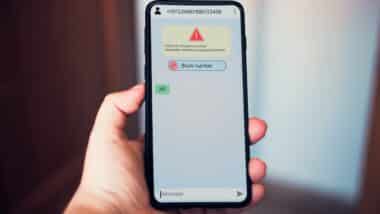 A Georgia woman is still recovering from a December 2013 episode of Stevens Johnson Syndrome she allegedly developed as a side effect of her psychiatric medication.
A Georgia woman is still recovering from a December 2013 episode of Stevens Johnson Syndrome she allegedly developed as a side effect of her psychiatric medication.
Khalia S. was prescribed lamotrigine, the generic version of Lamictal, to manage symptoms of her bipolar disorder. A few weeks later, she noticed a rash and peeling skin on her lips. Emergency room doctors diagnosed her with the flu. But two days later her skin began to blister and peel, and she felt like her skin was on fire. The outer layer of her skin was peeling off on a large scale. She was re-diagnosed then with Stevens Johnson Syndrome (SJS), a rare but traumatic reaction to certain medications. Her doctors transferred her to a specialist burn center where she would ultimately spend seven weeks getting constant treatment for her Lamictal SJS symptoms.
Khalia’s doctors put her in a medically-induced coma. When she woke up five weeks later, she had lost as much as 90 percent of the outer layer of her skin, leaving her covered in pink and white patches. Her hair and nails had all fallen out, and she was unable to see.
Over a year later, Khalia is still recovering. She now lives with her mother and requires frequent therapy and specialist care. Her hair has started to come back, and her vision has gradually improved – though it is still impaired enough to prevent her from returning to graduate school, and she has to wear dark glasses indoors. She also experiences occasional seizures, which she is told are a side effect of her extended medically-induced coma.
Stevens Johnson Syndrome and Toxic Epidermal Necrolysis
Khalia’s experience is typical of the worst cases of Stevens Johnson Syndrome, which when they have progressed to that degree may also be referred to as toxic epidermal necrolysis, or TEN. The condition attacks the skin, mucous membranes, and eyes, potentially threatening the patient with blindness. The condition is frequently misdiagnosed as the flu at first, but if given a chance to progress, SJS may ultimately be life-threatening.
SJS treatment requires weeks of hospitalization and monitoring, as the widespread loss of skin can expose the entire body to infection. Some doctors may administer corticosteroids or other drugs, but the core of treatment consists of simply controlling the patient’s immediate environment so that the body can heal itself.
Both SJS and TEN are rare. But when they do occur, they are more likely than not a reaction to medication.
What is Lamictal?
Lamictal is just one of many different types of medication capable of leading to SJS. Lamictal (or lamotrigine) is an anticonvulsant drug approved by the FDA to treat both epilepsy and bipolar disorder. Other anticovulsants are known to cause SJS and TEN, as are some antibiotics and nonsteroidal anti-inflammatory drugs. The Lamictal label includes a “boxed warning” about the possibility of severe skin side effects, including SJS.
SJS Lawsuits
An SJS lawsuit may be one avenue to compensation for patients who developed SJS after using Lamictal. SJS lawsuits may provide compensation for medical expenses, pain and suffering, lost income from being unable to work, lost future earning capacity, the effect of SJS on a marital relationship, and more. Attorneys are available to discuss the possibility of an SJS lawsuit for anyone who suffered that condition following treatment with Lamictal.
Do YOU have a legal claim? Fill out the form on this page now for a free, immediate, and confidential case evaluation. The Stevens Johnson Syndrome attorneys who work with Top Class Actions will contact you if you qualify to let you know if an individual lawsuit or class action lawsuit is best for you. [In general, SJS lawsuits are filed individually by each plaintiff and are not class actions.] Hurry — statutes of limitations may apply.
ATTORNEY ADVERTISING
Top Class Actions is a Proud Member of the American Bar Association
LEGAL INFORMATION IS NOT LEGAL ADVICE
Top Class Actions Legal Statement
©2008 – 2025 Top Class Actions® LLC
Various Trademarks held by their respective owners
This website is not intended for viewing or usage by European Union citizens.
Get Help – It’s Free
Help for Victims of Stevens Johnson Syndrome
If you or a loved one were diagnosed with Stevens Johnson Syndrome (SJS) or toxic epidermal necrolysis (TEN) after taking a prescribed or over-the-counter medication, you may be eligible to take legal action against the drug’s manufacturer. Filing an SJS lawsuit or class action lawsuit may help you obtain compensation for medical bills, pain and suffering, and other damages. Obtain a free and confidential review of your case by filling out the form below.
An attorney will contact you if you qualify to discuss the details of your potential case at no charge to you.
Oops! We could not locate your form.












